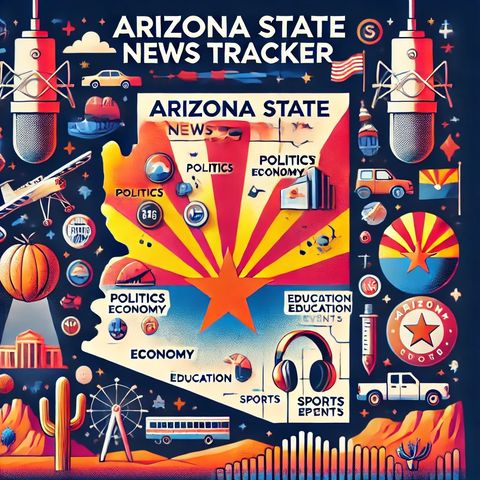13 NOV 2024 · Arizona has been at the center of national attention following the 2024 elections, with significant outcomes shaping the state's political landscape. The presidential election saw Donald Trump win Arizona, securing 11 electoral votes and completing a sweep of the seven battleground states over Vice President Kamala Harris[4]. This victory marked a significant shift, as Trump had lost Arizona in 2020 but managed to reclaim it this year.
In the U.S. Senate race, Democratic Rep. Ruben Gallego defeated Republican Kari Lake, a crucial win for Democrats amidst the GOP's takeover of the Senate[4]. Gallego's victory was attributed to his strong performance in key counties such as Maricopa and Pima, where he maintained substantial leads over Lake[2].
The election results also highlighted the importance of the top of the ticket, with Trump's presence likely helping the GOP maintain control of the state House. According to Mike Noble, founder and CEO of Noble Predictive Insights, Trump's influence was crucial in preventing a potential flip in the state legislature[1]. Noble noted that if Harris had won the state by a narrow margin, it could have led to one or both chambers flipping to Democratic control.
In terms of policy, the election saw the passage of several key propositions. The immigration proposition and the abortion proposition both passed, reflecting top issues for the GOP and Democrats, respectively[1]. However, the ranked choice voting proposition, Prop 140, was defeated, indicating that this voting method is not yet ready for widespread adoption[1].
Beyond the elections, Arizona continues to grapple with significant issues such as immigration and border security. The state shares about 370 miles of border with Mexico, an area that has seen a surge in migrant apprehensions. Trump has promised to restart border wall construction, a contentious issue that has been at the forefront of national debate[4].
In local government, the Arizona Supreme Court's decision to refuse an extension for curing ballots brought the state closer to finalizing the election and undecided races[1]. This decision underscored the importance of timely election results, a sentiment echoed by Noble, who stated that Arizonans generally want to hear results sooner[1].
Looking ahead, Arizona will continue to be a focal point for national politics and policy debates. The upcoming legislative session will likely see discussions on immigration, border security, and abortion rights, among other key issues. Additionally, the state's economy and business development will be closely watched, particularly in light of the CHIPS Act and its potential impact on Arizona's tech industry. As the state moves forward, it will be important to monitor these developing stories and their implications for Arizona's residents and the broader national landscape.
Upcoming events include the swearing-in of newly elected officials and the start of the legislative session, which will provide further insight into the state's political direction. Additionally, ongoing issues such as border security and immigration will continue to be at the forefront of national debate, with Arizona playing a critical role in these discussions. As these stories unfold, they will undoubtedly shape the future of Arizona and its place in the national political landscape.


